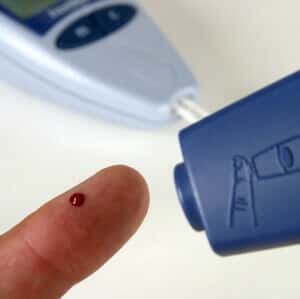
The high blood sugar of diabetes is associated with damage to the heart and kidneys. Just how much does slightly elevated blood sugar, termed prediabetes, affect health? Doctors define prediabetes as fasting blood sugar between 100 and 125 mg/dl. (Various organizations and experts may have slightly different cut-off points, but they are all reasonably close.) This elevated blood sugar, though not yet considered diabetes, results in glycosylated hemoglobin (HbA1c) of 5.7 to 6.4 percent. This is a way of measuring blood sugar over a period of several weeks.
How Does Elevated Blood Sugar Affect the Heart and Kidneys?
Scientists at the Centers for Disease Control and Prevention in Atlanta wondered whether prediabetes makes sense as a diagnostic term (Ali et al, The Lancet Diabetes & Endocrinology, online Feb. 27, 2018). How risky is this elevated blood sugar? To find out, the researchers tracked the health of roughly 28,000 adults for 25 years.
They used data from the National Health and Nutrition Examination Surveys to examine how prediabetes affects cardiovascular and kidney health. The survey periods included 1988-1994; 1999-2004; 2005-2010; and 2011-2014. Even slight elevations in blood sugar were associated with an increased risk of both heart and kidney disease.
Moreover, the researchers found that as the proportion of people with prediabetes rose, so did the prevalence of high blood pressure and elevated blood fats such as cholesterol. Over time, fewer people smoked but more had high blood presure. People who had been diagnosed with diabetes were far more likely to be taking medication for their high blood pressure and high cholesterol.
Can You Protect Your Heart and Kidneys?
Hopefully, people with prediabetes who control their glucose levels with diet and exercise will prevent complications of the heart and kidneys. They may also need to pay attention to blood pressure and blood fats, and take steps to bring them under control as well. In some instances, this may require medication.
If you would like guidance on natural approaches to blood sugar control, you may wish to read our Guide to Managing Diabetes. Although it was written primarily for people with type 2 diabetes, those with prediabetes can benefit from the suggestions as well. You might also want to listen to our interview with Dr. Matthew Longjohn of the YMCA, Dr. Karen Lawson of the University of Minnesota and Dr. Tieraona Low Dog, a founding member of the American Board of Integrative Medicine. It is Show 1036: How to Prevent Diabetes by Changing Your Life.

